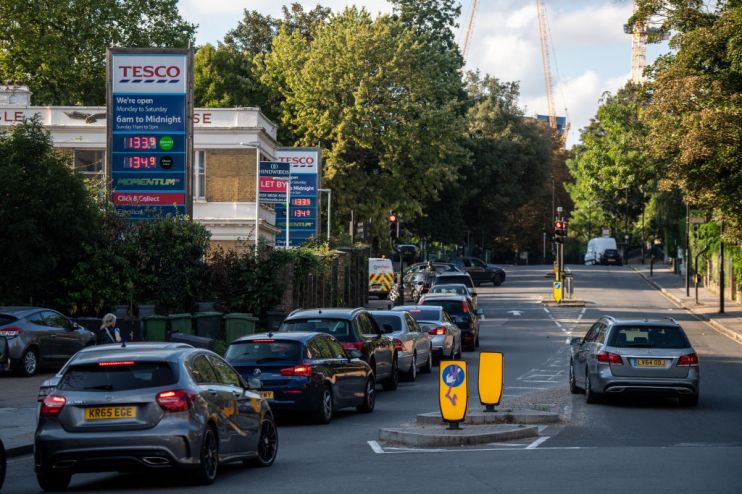ONS: Cost of living grip chokes nearly every UK household

Predictions that the UK economy is hurtling towards a period of weaker growth look set to materialise driven by historically high inflation squeezing almost all households across the country, official statistics released today indicate.
Soaring energy, petrol and food prices have led to nearly nine in 10 Brits experiencing an uptick in their cost of living, according to the Office for National Statistics (ONS).
The proportion of people noticing a rise in their spending has climbed 25 percentage points in just four months, underlining the pace at which inflation is ripping through the UK economy.
Prices are seven per cent higher than they were a year ago, the quickest acceleration since 1992.
Spending on energy has soared, the ONS said, driven by higher wholesale oil and gas prices feeding through to household bills.
Worryingly, the statistics agency’s research was carried out before the energy watchdog’s 54 per cent hike to the price cap took effect in April, indicating the rising cost of living is set to hit more households in the coming months.
Russia’s invasion of Ukraine has sent oil, gas and food prices spiralling due to it disrupting the normal functioning of supply chains.
However, even before the invasion, inflation was running extremely hot, mainly caused by lingering Covid-19 disruption to global trade flows.
Fears over a ramping up of lockdowns in China as Beijing continues with its zero-Covid policy has increased the likelihood of the rate of price rises in western economies staying higher for longer.
Brits are expected to slash spending in response to their living standards eroding at the quickest pace in 66 years due to wages failing to keep pace with an annual inflation rate of over seven per cent.
Forecasters have downgraded growth forecasts off the back of an expected living standards collapse.
The financial blow delivered by rising energy bills is hitting poorer Brits harder, with 13 per cent of this group falling behind payments compared to four per cent of those living in the richest areas of the country.
The ONS’s next tranche of research is likely to show late payments among less well off households rising due to it taking into account Ofgem’s price cap rise.
Nearly half of Brits have pared back energy consumption in response to rising bills.
As a result of the rising cost of living, Brits are borrowing more to plug expenditure gaps, with 17 per cent of households taking on more debt than usual.
Elevated savings rates exhibited during the pandemic due to normal spending channels being cut off by lockdowns look set to cool.
Nearly half of households said they are unable to put money aside.